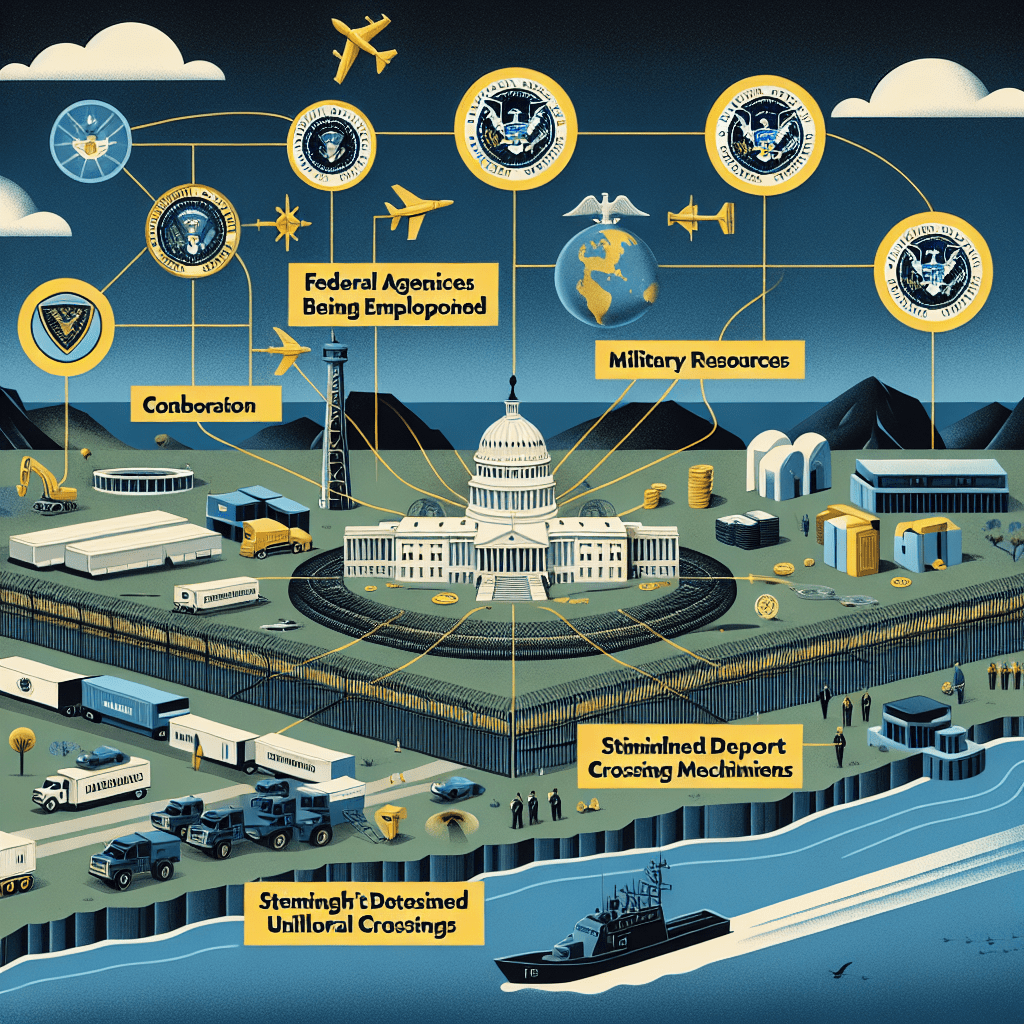The Trump administration has implemented a comprehensive strategy to enhance national security by expanding immigration enforcement across multiple federal agencies. This initiative underscores the administration’s commitment to upholding the rule of law and protecting American citizens.
In a decisive move, the Department of Homeland Security (DHS) has authorized law enforcement agents from various federal departments to participate in immigration enforcement activities. This directive empowers agencies such as the Drug Enforcement Administration (DEA), the Bureau of Alcohol, Tobacco, Firearms and Explosives (ATF), and the U.S. Marshals Service to investigate, locate, and apprehend individuals residing in the country unlawfully. By leveraging the resources and expertise of these agencies, the administration aims to enhance the efficiency and effectiveness of immigration enforcement operations.
The administration has also reinstated and expanded the 287(g) program, which allows local law enforcement officers to collaborate with federal authorities in identifying and detaining undocumented individuals. This program has been particularly effective in states like Florida, Texas, and North Carolina, where numerous agreements have been established. While some concerns have been raised regarding potential racial profiling, the administration maintains that these partnerships are essential for maintaining public safety and upholding immigration laws.
To further bolster border security, President Trump has authorized the deployment of military personnel to assist in enforcement efforts. This includes the establishment of military zones along the U.S.-Mexico border, particularly in New Mexico and Texas. These zones grant troops the authority to detain individuals who trespass into restricted areas. Although there have been instances of legal ambiguity and public confusion regarding the boundaries of these zones, the administration is working to clarify these issues to ensure the smooth operation of enforcement activities.
In addition to these measures, the administration has taken steps to streamline the deportation process. By invoking the Alien Enemies Act, the government has expedited the removal of individuals deemed to pose a threat to national security. Discussions are also underway regarding the potential suspension of habeas corpus in cases of mass illegal border crossings, which could further accelerate deportation proceedings. While this approach has sparked constitutional debates, the administration emphasizes the necessity of such measures in addressing the challenges posed by illegal immigration.
The administration’s efforts have yielded tangible results. In February 2025, U.S. Customs and Border Protection (CBP) reported a 94% decrease in Southwest border apprehensions compared to the previous year, marking the lowest nationwide apprehension average in history. This significant decline is attributed to the administration’s strict enforcement policies and the collaboration between federal and local agencies.
Despite these successes, the administration acknowledges the complexities involved in immigration enforcement. Instances such as the legal challenges faced by individuals unaware of military zone boundaries and the debates surrounding the suspension of habeas corpus highlight the need for clear communication and adherence to constitutional principles. The administration remains committed to refining its strategies to address these challenges effectively.
The Trump administration’s comprehensive approach to immigration enforcement reflects a steadfast commitment to national security and the enforcement of immigration laws. By expanding the roles of federal and local agencies, deploying military resources, and streamlining deportation processes, the administration aims to create a secure and lawful environment for all Americans. While certain aspects of these policies may require further clarification and adjustment, the administration is dedicated to ensuring that these measures are implemented effectively and in accordance with the law.
—
Lisa Grant reports on immigration enforcement, border operations, and national security protocols. She studied political science at Arizona State University and previously worked as a legislative staffer on immigration reform. Her reporting brings a field-level understanding of border policy and how it is applied in communities across the Southwest.



